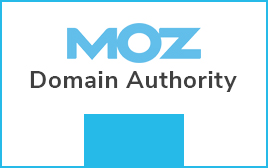Everything You Should Know About Master Data Management
Every business or company usually has an extensive collection of data regarding their products, assets, employees, customers, vendors, suppliers, contracts, policies, performance, reports, and transactions for reference, and also analytical data for making relevant decisions. To increase efficiency and prevent errors and redundancy in the business processes of the organization, the entire business data needs to be managed appropriately.
What Is a Master Data?
The essential data within an organization describing the core objects around which the organization transacts business is referred to Master Data.
Master Data rarely changes, but it involves the reference data that is underpinning to the operations of the business. Besides, it is not transactional but gives details about all transactions that take place in an organization.
The four categories of Master Data includes products, customers, locations, and other. Each of these categories is explained below:
1. Products include the product, store, part, and asset sub-categories.
2. Customers include customer, salesperson, and employee sub-categories
3. Locations include office location, branches’ location, and geographic sub-categories.
4. Other includes contract, warranty, policies, and license sub-categories.
What Is a Master Data Management?
Master Data Management refers to the techniques, methods, and business tools that assist in defining, classifying and managing different forms of essential or Master Data of an organization with the aim of improving performance by putting forth a reference.
Besides, Master Data Management involves a great deal of data cleansing, integration, and transformation practices to ensure that data sources added to the system are identified, merged or transformed to create schemas and taxonomies for maintenance of a high-quality Master Reference.
What Are The Benefits of Master Data Management Best Practices?
1. Master Data Management provides the right business tools or mechanisms for the collection, assessment, matching, quality measurement, and distribution of raw data throughout an organization to maintain and use the processed data to full potential.
2. By creating a single point of reference for critical information across an organization, Master Data Management helps to eliminate costly redundancies that happen when an organization makes use of multiple, conflicting sources of data.
3. It is common for organizations to have various sources of data, which may have very high associated costs. However, Master Data Management unifies or integrates, updates, and ensures the accuracy and currency of data.
4. Master Data Management helps to ensure fewer errors in decision-making and running of the organization’s business.
5. Companies with segmented product lines can prevent disintegrated customer experiences through Master Data Management.
What Is The Relevance of Master Data Management to Business?
Given its immense benefits, it is crucial that businesses ensure sound Master Data Management for the following reasons:
1. Compliance with Regulations
With a well-defined Master Data Management, businesses can guarantee total compliance with its policies, standards, and regulations.
2. Cost Reduction
Master Data Management eliminates duplication of data and enhances the distribution and management of resources within the organization or business.
3. Risk Management
Businesses have access to refined data that helps in managing risks effectively.
4. Growth and Scalability
Business decisions regarding the growth and scalability are possible with the right information made available by managing the Master Data of the business accurately.
5. Enhanced Customer Satisfaction
An organization can have a perfect and updated list of its customers and implement programs or policies that will provide their customers with an exhilarating experience.
In conclusion, Master Data Management promotes data quality that is critical for efficient and informed decision-making in an organization. It is an indispensable business tool to manage, operate, and grow a business.
Disclosure:
I received the items in this post as complementary to share my honest and unbiased opinion of products (unless otherwise stated). All opinions expressed on this page are those solely of Laurali’s Blog & Reviews. Thank you for your interest!







 31
31
Leave a Comment